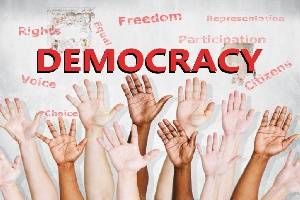The debate over Ghana's democratic journey has taken a sharp and emotional turn following recent remarks by Professor Agyeman Badu Akosa. His statement during a public lecture at the University of Education, Winneba, ignited conversations nationwide. He did not mince words when he declared that Ghana’s multi-party democratic system has failed to serve the interest of the ordinary citizen, enriching only the political elite since its inception in 1992. According to him, the gains of democracy are enjoyed by a privileged few, leaving the masses disillusioned and marginalised.
His sentiments resonate with many Ghanaians who feel the growing weight of inequality. While the country has earned global praise for its peaceful transitions and relatively free elections, the quality of governance and the delivery of tangible socio-economic development remain subjects of public concern. Prof. Akosa stressed that the working class and the underprivileged have largely been left out of the progress being celebrated. For him, democracy should mean more than just elections; it should equate to sustainable national development and visible improvements in the lives of all citizens.
However, Professor Jeffrey Haynes, a political expert from London Metropolitan University, offers a contrasting perspective. He believes that while democracy is not a perfect system, it remains the best framework for accountability, civil freedoms, and development. In his opinion, democracy is primarily a mechanism for choosing leadership. If a government fails, voters have the power to vote it out. The idea that democracy alone can deliver sustainable development is, in his view, a misunderstanding of its core purpose.
Ghana’s challenges are indeed many—corruption, environmental degradation from illegal mining, and partisan politics that hinder continuity in policy and development. But to blame democracy for these ills may be oversimplifying a complex reality. Ghana remains one of Africa’s few liberal democracies, with a vibrant media, active civil society, and legal structures that still uphold civil liberties. These features enable citizens to voice dissatisfaction, demand accountability, and engage in political discourse—tools that are nonexistent in authoritarian regimes.
What Ghana suffers from, as pointed out by Professor Haynes, is not a failure of democracy but the consequences of poor governance and deeply rooted partisanship. The cycle of political rivalry means every new government tries to undo the policies of its predecessor, leading to wasted resources and stalled progress. Furthermore, the influence of illegal mining activities, which are said to benefit both major political parties, adds another layer of complexity. These issues cannot be resolved by abandoning democracy, but rather through reforming it and holding leaders accountable.
Ghanaians are not disillusioned by democracy itself, but by the gap between its promises and their lived realities. The call is not to discard the democratic system, but to ensure it works better for the people. The challenge lies in bridging the divide between the elite and the ordinary citizen, promoting inclusive growth, and safeguarding national resources for future generations. The upcoming administration will have a tough task ahead—to not only maintain democratic gains but also address the fundamental needs of the people who have long waited to feel the true impact of Ghana’s celebrated democracy.



No comments yet
Be the first to share your thoughts!